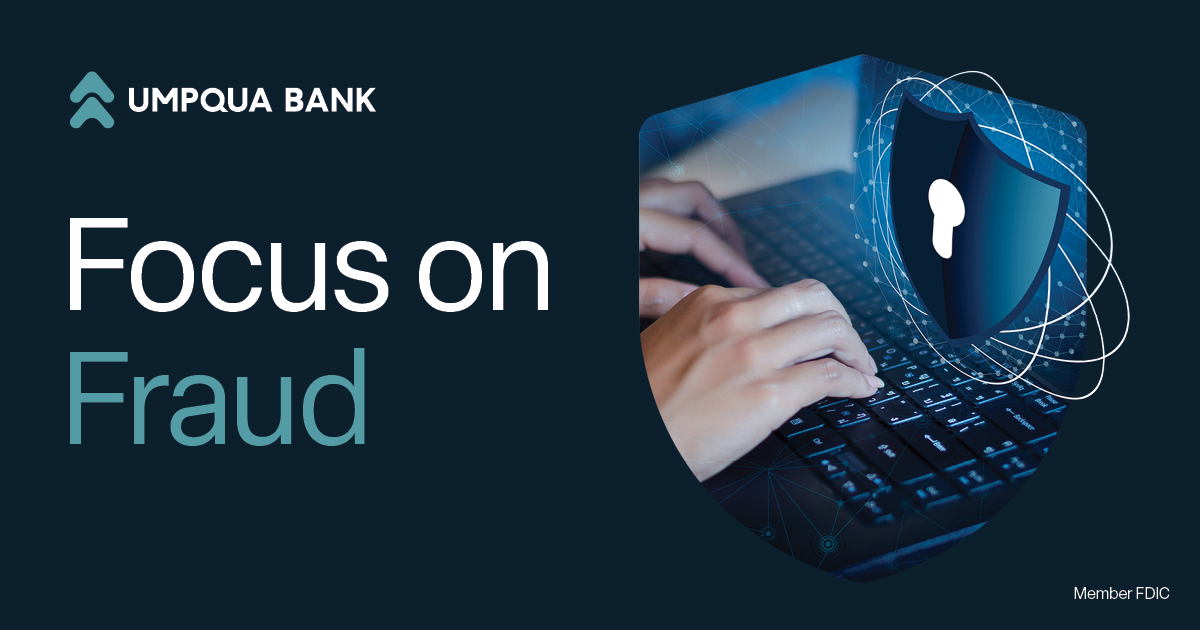Focus on Fraud: Protecting older loved ones from financial fraud

Financial fraud targeting older adults, while underreported, accounts for billions of dollars in losses every year. It can take the form of theft, forgery, deception, exploitation or control.
Criminals see older adults as an attractive target: they are a significant and growing population, often with larger reserves of money. The losses can be devastating, sometimes wiping out a lifetime of savings.
Watch for these red flags
It's important to know what to look for. Possible signs there’s a problem include:
- Unpaid bills
- Sudden changes in spending habits
- Unusual bank account activity
- Unexplained withdrawals or transfers
- Increased isolation from friends and family
- Withdrawal from normal activities
- Secrecy
- Sudden new “friendships”
 |
Visit our Security Center todayLearn five SMART steps to take, helpful tips and more. |
Arm yourself with knowledge
Criminals use a variety of methods to lure and trick victims. Here are some popular tactics:
- Romance scam
Using social media or a dating website, the scammer finds and charms the victim. Their relationship builds online or over the phone, avoiding in-person meetings. Eventually the scammer requests money for help with a fake need, such as a trip to visit the victim, assistance with a family emergency, or help paying taxes for items held in customs.
- Imposter scam
A common scam involves criminals posing as employees of a bank or law enforcement agency to gather personal information or access to their accounts.
In some cases, they’ll ask the victim to share a one-time passcode to verify their identity. The scammer instead uses that information to access the banking account.
In another version, the scammer claims they need assistance investigating an internal theft occurring at the victim’s bank. The victim is convinced to wire or withdraw money and send it elsewhere to be protected. Additionally, the victim is instructed not to share details with bank employees and is given instructions on how to respond to inquiries from their bank.
- Tech scam
The victim receives a call or email, or even a pop-up message, from someone claiming to be from tech support. The victim may be asked to run “tests.” In reality, the criminal is trying to get remote access to steal personal information or install malware, or they may direct the victim to phony websites or collect credit card information by selling worthless services.
Take these 10 steps to protect yourself or loved ones
- Add a trusted family member to an account to help with monitoring.
- Limit what is shared online. Personal information can be used to gain access or trust.
- Monitor accounts frequently to identify any unauthorized activity.
- Never share online banking credentials.
- Trust but verify. If you receive a phone call from the bank or law enforcement, hang up and call them at a confirmed phone number before taking action or sharing any information.
- Remember, your bank will never call to ask for your passcode or personal information.
- If a caller says your computer has a problem, hang up, even if the caller ID looks real.
- If you get an email or pop-up message to call a tech support number or click a link, ignore it.
- Secure checks, debit cards and credit cards when not in use.
- Remember that your bank will never call you to ask for your password or one-time code. We will use a passcode to authenticate your identity only if you initiate the call to us.
Report suspected fraud to your bank immediately. Contact Umpqua Bank at 866-486-7782.
Check out our other Focus on Fraud topics, including:






